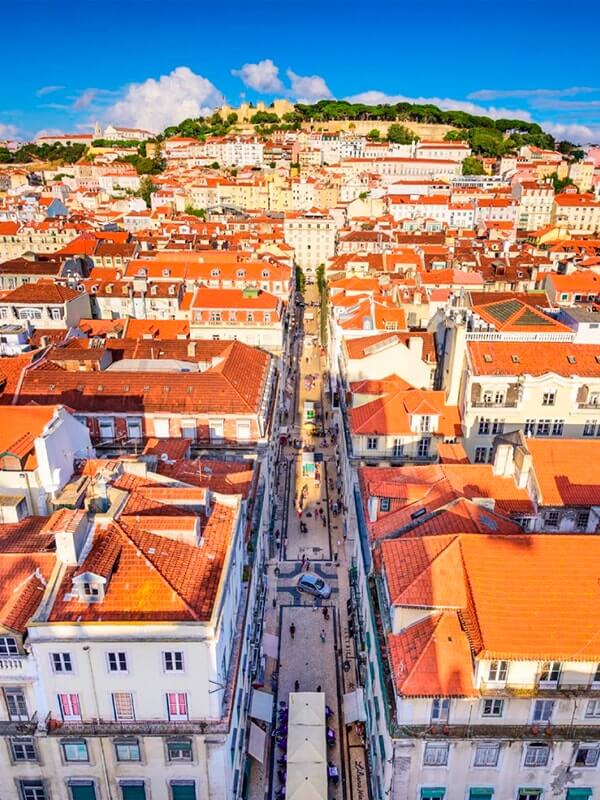
Government Wants Portugal to Be the Most Inclusive and Accessible Destination in the World

Tourism Secretary of State, Ana Mendes Godinho, challenged today, in Batalha, promoters to make Portugal into the “most inclusive and accessible destination in the world” and had advised that they take advantage of the helpline to adapt.
“We’ve been considered many things: yesterday we were deemed the Friendly Destination in the World, and now the challenge is to be the most inclusive and accessible in the world. The challenge I leave here is that we fight for it to also become one of our Oscars”, Ana Mendes Godinho claimed, during the contract signing session “Accessible Tourism in Portugal”, that took place in the Mosteiro da Batalha, in the district of Leiria.
Outside the event, the Secretary of State pointed out that it’s necessary to “prioritize actions that guarantee that Portugal is increasingly a destination for all, inclusive, and that is also recognized for it”.
Ana Mendes Godinho reminded that they are working in several areas, in articulation with the Inclusion Secretary of State, in an effort to “capacitate both the public and private offer”, and betting on the dissemination of information, because, “many times, adaptations are simple, cost little and people just don’t know how to do it”.
Tourism students now have a “module dedicated to accessible tourism” and several promotional films are being broadcast to “promote Portugal as an accessible destination”, she further informed.
To “accelerate change”, a financing line was launched, with already 69 approved projects, and 8,5 millions of euros of incentive, said the Secretary.
Today, the contracts of 11 of these projects were signed, which represent 2,1 millions of euros of investment and 1,7 millions of incentive.
Ana Mendes Godinho also revealed the existing partnership between Portugal Tourism and the Vodafone Foundation on the “Tur4all” app, with “information regarding the accessible offer in Portugal, precisely to intentionally increase the country’s position as an inclusive destination”.
For the Tourism Secretary of State, “whoever misses this train, loses the carriage”. A message addressed to the entrepreneurs, for “there is much to do on an adaptation level, namely for the private spaces, hotels, restaurants and here is an opportunity for a market of millions”.
“If we want to guarantee we can hit the markets that spend the most, we also have to be smart to prepare our offer for such. Thus, I challenge our hotels and tourism companies to quickly adapt so that they don’t miss the train,” she underlined.
The Inclusion Secretary of State, Ana Sofia Antunes, reminded that “just in Europe there are around 90 millions of tourists with specific mobility needs.
“This is the market. Whoever doesn’t make this bet, will lose the sector, a sector that spends more, stays more and comes back more”, she stressed.
According to Ana Sofia Antunes, tourism has “become the door that’s opening to help other government areas sensitize to the need to invest in these questions in other sectors,” namely in “public spaces and services”.
The public officer stated that “when you start working for a population with specific needs or disabilities, you end up facilitating their lives and bringing in a series of tourists who wouldn’t have been able to come, or would have come less, because they’re of advanced age.
Ana Sofia Antunes underlined that accessibility isn’t solely meant for people with disabilities, but also for people with “disabilities associated with age”.
“When we’re creating accessibility in cultural spaces, we’re also bringing in domestic tourists, those who live here and perhaps have never come, we’re promoting contagion, when, for example, restaurant A decides to adapt and out of the need to keep up with this movement the remaining restaurants will also create the same accessibility because they don’t want to nor can they afford to stay behind,” she added.
Today, 11 projects of accessible tourism were signed, financed by the Accessible Tourism Support Line of the Valorize Program. Among those contemplated are the accessibilities improvement in the Monastery of Batalha, Convent of Christ (Tomar), Mafra National Palace and its Basilica, São Jorge Castle and São Jorge Cinema (Lisboa), visitable area of the Tapada Nacional de Mafra, in Vila Galé and the Archaeological Campus of Oliveira do Hospital (Bobadela).
Accessible programs for the Caminho de Santiago, the reconversion of the Ethnographic Museum and Tourist Office of Praia de Mira, accessible and inclusive communication in the Convent of Christ, Monastery of Alcobaça, Monastery of Batalha, National Museum Machado de Castro (Coimbra) and Palace of Mafra, installation of interactive tourist information equipment with digital content accessible in the cities of Ourém and Fátima and acquisition of buses that can carry people in wheelchairs were other projects contemplated.
